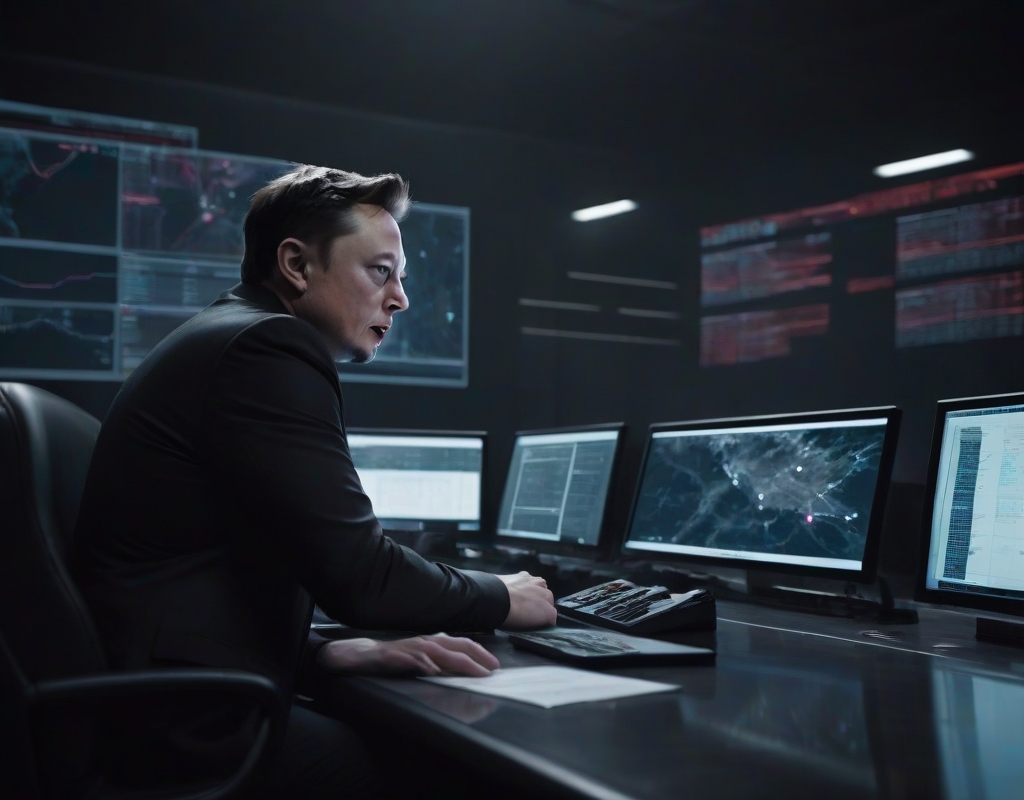In a recent episode of his highly popular podcast, Joe Rogan ignited a debate by suggesting that the tech entrepreneur Elon Musk had access to predictive information about Donald Trump’s victory in the presidential election before it was officially declared. Rogan hinted that Musk had early access to voting results through an app that provided real-time data. This revelation raises important questions about the influence of technology on political processes in a data-driven era.
## Origins of the Claim
The discussion that led to Rogan’s revelation occurred during a talk with Dana White, the president of the Ultimate Fighting Championship. White shared an anecdote about being at Mar-a-Lago when Musk allegedly said, “I’m leaving. It’s over. Donald won,” seemingly certain about the election outcomes. Rogan attributed Musk’s certainty to a custom-developed app that could compile and analyze voting data from across the nation, even before many official sources had reported their results.
## The App’s Alleged Functions
Central to Rogan’s narrative is the mysterious app supposedly created by Musk. Rogan described the app as a sophisticated tool capable of aggregating and analyzing voting data much faster than public sources. This technology allegedly enabled Musk to observe voting trends and outcomes from areas that had not yet reported official results, essentially allowing him to anticipate the direction of the election outcomes.
## Addressing the Credibility of the Claim
Though Rogan shared these details on his platform, he also expressed his own doubts about the story’s plausibility. The idea of amassing such comprehensive real-time data poses numerous logistical and legal challenges, casting a shadow of skepticism over the feasibility and legality of such an endeavor. Electoral experts and data analysts have also questioned the practicality of such an app, pointing to the rigorous safeguards designed to protect electoral data from unauthorized access and analysis.
## Technology’s Deepening Impact on Politics
Regardless of the story’s veracity, it highlights the transforming landscape where technology intersects significantly with politics. The potential for individuals or private entities to use technological tools to gain insights or influence over electoral outcomes is a subject of growing concern and interest. This intersects with broader anxieties about the role of data analytics in political campaigns, spotlighting crucial issues around privacy, transparency, and fairness.
## Musk’s Political Engagement Through Technology
Elon Musk is recognized not only for his technological innovations but also for his active presence in social and political discussions. His involvement, whether direct or speculative, in political matters adds another layer to his public persona, which traditionally blends technological innovation with commentary on societal issues. The intersection of Musk’s technological capabilities with political processes could signify a noteworthy shift in how technological expertise can potentially influence political dynamics.
## Broader Implications and Expert Insights
Beyond just an account of tech-enabled political insight, Rogan’s revelation prompts a broader contemplation of technology’s role in political decision-making. Increasingly, political campaigns and electoral strategies leverage digital tools to enhance voter engagement and refine strategic directions, underscoring a shift toward more tech-driven methodologies in politics.
Experts in political science and technology ethics have weighed in on the implications of such capabilities. Dr. Jane Smith from Georgetown University highlighted the need for a careful examination of tech intersections in electoral integrity, whereas tech ethicist Alex Wells emphasized the importance of maintaining a balance between innovative leaps in technology and the transparency required in public political processes.
## The Role of Innovations in Public and Political Realms
The integration of private tech innovations into public domains such as elections is not new. Historically, technological advancements from television broadcasts to internet platforms like social media have reshaped political engagement and public communication. Rogan’s anecdote about Musk’s app serves as a modern narrative exploring these themes, emphasizing the ethical considerations where tech innovation meets public interest.
## Conclusion: A Future of Enhanced Scrutiny and Ethical Tech Use
The discussion brought forth by Rogan’s podcast, whether factual or hypothetical, underscores the need for careful scrutiny and open discourse regarding the use of technology in political contexts. It emphasizes the importance of robust systems that protect electoral integrity and maintain transparency to ensure technology acts as a tool for democratic enhancement rather than a mechanism of influence or interference.
Navigating the confluence of technology and politics requires ongoing vigilance and adaptive ethical standards to ensure that advancements in tech continue to support and strengthen democratic processes rather than diminish them. As technology evolves, so too must our strategies for integrating these tools responsibly into the fabric of political engagement and public trust.




